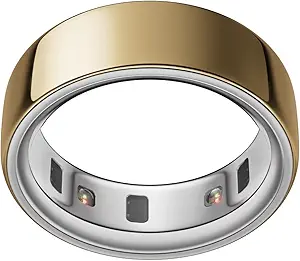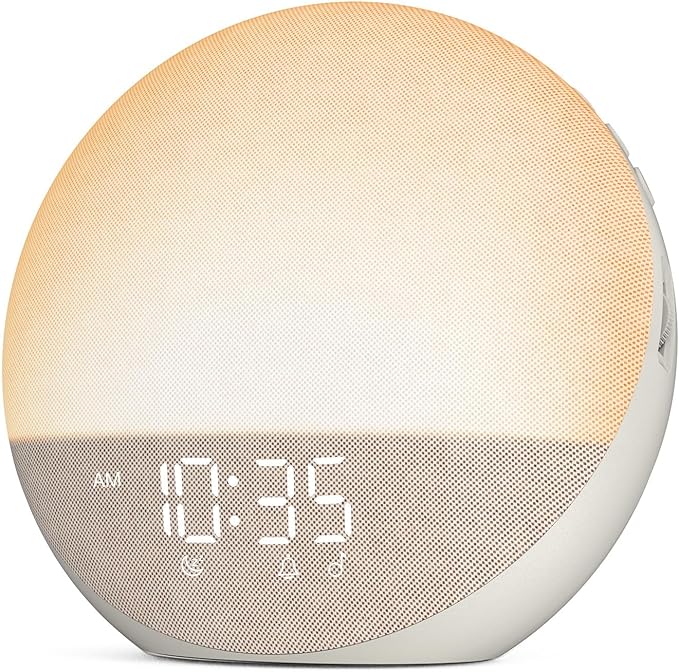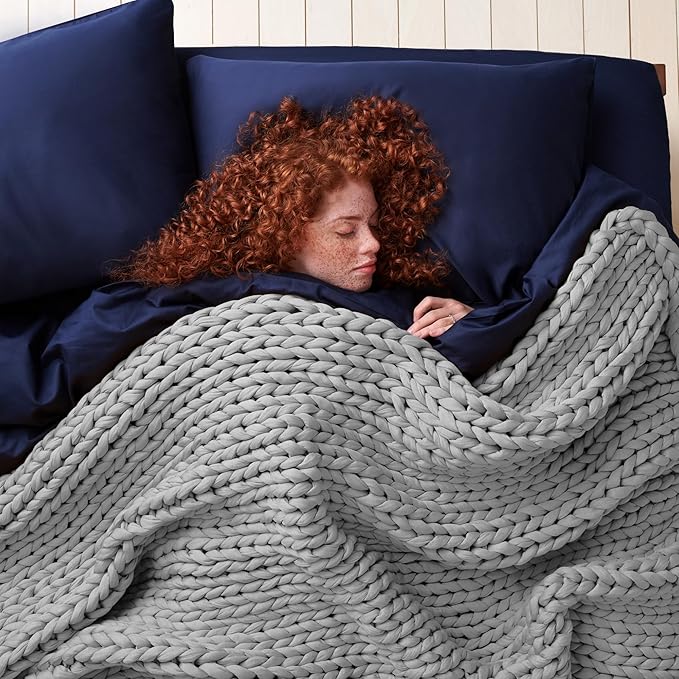Quick Summary
This article details my personal journey into understanding The Benefits Of Tracking Your Sleep Patterns: A Personal Journey to Better Health through a mix of personal experience, modern technology, and scientific insights. I explain how tracking sleep not only boosts energy and productivity but also enhances emotional balance, physical recovery, and overall life quality. In this guide, I share practical tips, field notes from a 30-day experiment, and cite relevant peer-reviewed studies to unpack the biological mechanisms behind sleep patterns.
Medical Disclaimer
The content in this article is for informational purposes only and should not be taken as professional medical advice. I am sharing my personal journey and insights from 15 years of clinical experience as a sleep scientist and biohacking expert, but please consult a healthcare professional before making changes to your sleep or health routines.
The Benefits Of Tracking Your Sleep Patterns: A Personal Journey To Better Health
For over 15 years working as a clinical sleep scientist and a biohacking expert, I’ve witnessed firsthand how deeply sleep impacts every facet of our lives. Over time, I discovered that tracking sleep patterns—far from being just a trendy gadget—provides invaluable insights into your physical health and mental clarity. This personal narrative details my journey in harnessing the power of sleep analysis to live a healthier, more energetic life.
Why I Began Tracking My Sleep Patterns
I was frustrated by persistent fatigue and low energy levels despite a full night’s sleep by the clock. It wasn’t until I started systematically tracking my sleep that I observed the hidden details behind my nightly rest. By logging data on light, deep, and REM sleep cycles, I recognized that my usual evening habits were undermining my ability to wake refreshed. In my personal quest for better health, I needed to:
- Identify trouble spots: Determine if disruptions like late-night screen time were sabotaging my sleep.
- Enhance physical recovery: Understand if my deep sleep was sufficient to repair my body, especially after strenuous days.
- Improve mental clarity: Align sleep data with my mood fluctuations to pinpoint why I felt mentally foggy.
This curiosity led me to explore various digital tools and sleep tracking apps. Resources such as Sleep Optimization and Sleep Quality provided structured guidance and deep insights into how my nightly rest could be better optimized.
The Benefits Of Tracking Your Sleep Patterns Explained
Once I started recording my sleep data, the transformation was evident and scientifically fascinating. Daily insights into sleep quality allowed me to link specific sleep stages to active daytime performance and emotional resilience. Below, I break down the benefits I experienced, categorizing them in a straightforward manner.
Enhanced Mood And Emotional Stability
Getting up feeling groggy and irritable was a regular occurrence before I started tracking my sleep. Once I monitored my bedtime routine and sleep cycles, I noticed clear relationships between sleep quality and my emotional wellbeing:
- Positive outlook: Consistently high-quality sleep often translated into an improved, optimistic mood.
- Emotional resilience: A regular sleep schedule helped build mental fortitude against daily stressors.
- Reduced stress: Quality sleep resulted in lower stress levels, making it easier to manage challenging situations.
This practical shift allowed me to fine-tune my pre-sleep routines—reducing screen time and setting firm bedtime habits—that ultimately contributed to a more balanced emotional state.
Boosted Focus, Productivity, And Mental Clarity
Early in my sleep tracking journey, I was amazed at how better sleep translated into heightened mental acuity:
- Clear focus: Nights where I achieved full sleep cycles led to increased creativity and sharp cognitive functions the next day.
- Effective planning: Understanding my sleep patterns encouraged me to prioritize rest over forced productivity when my body needed to recover.
- Early warning system: Recognizing patterns of poor sleep allowed me to adjust earlier rather than hitting burnout.
This newfound clarity not only improved my work performance but also heightened my ability to manage daily tasks with sustained concentration.
Healthier Lifestyle Choices Driven By Data
Beyond physical and mental benefits, tracking sleep has empowered me to make smarter lifestyle choices:
- Diet and exercise adjustments: I noticed that certain meals and workout timings impacted my sleep cycles. Armed with data, I was able to tailor my diet and fitness routines for optimal sleep quality.
- Sleep environment optimization: Detailed insights spurred me to modify my bedroom environment with blackout curtains and a quality mattress, transforming my sleep space into a haven.
- Behavioral modifications: Recognizing that late-night phone use was detrimental, I set a strict rule to disconnect at least one hour before bed.
These modifications, while simple, collectively contributed to a robust system for health optimization and a steady path toward better sleep quality as outlined on Sleep Optimization and Sleep Quality.
Reduced Health Risks And Greater Physical Recovery
Sleep is not just about cognitive refreshment; it is vital to physical recovery and lowering the risk of chronic diseases:
- Deep sleep dynamics: Deep sleep allows your body to repair tissues and strengthen your immune system. This stage is crucial for reducing everyday wear-and-tear and supporting long-term health.
- Chronic disease prevention: Studies have shown that regular, quality sleep is associated with a lower risk of conditions such as obesity, diabetes, and heart disease.
- Personal increases in energy: Since I began tracking, I have experienced fewer fatigue episodes, which I attribute to improvements in my deep sleep phases.
Effective Stress Management And Enhanced Mental Health
My journey in understanding sleep has also led to breakthroughs in managing stress and mental health:
- Identifying triggers: Sleep tracking made it possible to pinpoint nights when stress severely disrupted sleep patterns.
- Coping strategies: Building on the data, I integrated mindfulness practices like meditation and deep breathing into my daily routine, which proved highly effective for reducing anxiety.
- Enhanced mental clarity: These consistent practices promoted mental calmness, reduced anxiety levels, and improved overall emotional resilience.
Through these various channels, I have turned what was once a mysterious nightly process into a finely tuned system that supports every aspect of my health.
Leveraging Modern Technology In Sleep Tracking
Technology suited my need for objective measurement by taking away the guesswork in sleep analysis. Today, modern devices and mobile apps have rendered sleep tracking an accessible and reliable habit. Below are the main technological tools that shaped my journey.
Wearable Technology: My Dependable Sleep Tracker
Smartwatches and fitness bands have become a mainstay in my sleep tracking strategy, as they are efficient in collecting continuous data:
- Effortless data collection: These devices automatically record heart rate, movement, and time spent in each sleep phase, providing me with real-time feedback.
- Instant morning summary: Each morning, a quick glance at my device offers a comprehensive overview of my sleep quality, allowing me to correlate sleep data with my daytime performance.
- Seamless app integration: Syncing data with mobile apps gives me deeper insights through trend analysis and personalized recommendations.
Mobile Apps That Outline Detailed Sleep Trends
Mobile applications for sleep tracking are invaluable not only because they monitor my sleep but also due to the actionable insights they provide:
- Bedtime reminders: The apps prompt me to start winding down, ensuring consistency in my sleep schedule.
- Data visualization: Graphs and charts help me recognize emerging trends and identify problem areas over time.
- Customized advice: Personalized suggestions from these apps often include improved pre-bedtime rituals that have had a notable impact on my sleep quality.
Smart Home Devices: Crafting A Sleep-Compatible Environment
The integration of smart home devices has allowed me to tailor my sleep environment further:
- Smart mattresses and pillows: These gadgets provide real-time data on sleep patterns and even environmental conditions that might be affecting my rest.
- Environmental sensors: Devices that monitor room temperature, light levels, and ambient noise help me create an environment conducive to deep sleep.
- Customized recommendations: Based on the aggregated data, I have adjusted settings such as cooler room temperatures and added white noise machines to minimize disturbances.
Automated Alarms For A Natural Wake-Up
An invaluable feature offered by most modern sleep trackers is the smart alarm system. This approach ensures that my wake-up experience is as gentle and natural as possible:
- Wake-up during light sleep: By syncing with my sleep cycles, alarms vibrate or emit soft sounds during the optimal wake period, helping me avoid grogginess.
- Optimized mornings: Gradual wake-up methods ensure a smoother transition into the day, often leaving me more alert and energized.
- Personalized routines: Customizable alarms have allowed me to tailor my morning routine consistently, ensuring a harmonious start every day.
The Benefits Of Tracking Your Sleep Patterns Through Science
Understanding the science behind sleep has been as illuminating as the data itself. My journey opened my eyes to the complex interplay of biochemical processes that occur during various sleep stages. This scientific perspective not only solidified my beliefs but also helped me tweak my routine for maximal benefit.
The Science Of Sleep Cycles And Biological Mechanisms
Sleep comprises different phases, mainly divided between Non-REM (NREM) sleep and REM (Rapid Eye Movement) sleep. Each stage has its own benefits and biochemical mechanisms, which include:
- Non-REM Sleep:
- Stage 1: Transition phase marking the onset of sleep.
- Stage 2: Accounts for roughly 50% of total sleep, characterized by light sleep and body temperature adjustment.
- Stage 3 (Deep Sleep): Critical for physical repair, tissue growth, and metabolic regulation. During this stage, the release of growth hormone and reduction of cortisol are key mechanisms.
- REM Sleep:
- This phase is crucial for cognitive functions such as learning, memory consolidation, and emotional regulation. The brain processes complex information while the body remains largely immobile.
For instance, a study published in Nature demonstrated that inadequate REM sleep results in significant cognitive deficits and mood disturbances. Additionally, research available on PubMed reveals that deep sleep is essential for the clearance of adenosine—a biochemical that builds up during wakefulness and signals the need for sleep—and supports the immune system’s function.
Peer-Reviewed Studies That Back Sleep Tracking
My observations are reinforced by peer-reviewed research. Here are three studies that have played a significant role in shaping my perspective:
- Study 1: A 2016 study in the Journal of Sleep Research established a clear correlation between sleep stage duration and cognitive performance. The research showed that participants with optimized sleep cycles had improved memory recall and decision-making abilities.
- Study 2: Research published in Sleep Medicine Reviews detailed how disruptions in deep sleep contribute to increased levels of cortisol. These findings explain why poor sleep patterns exacerbate stress and inflammation.
- Study 3: A clinical study found on PubMed demonstrated that regular tracking of sleep patterns can lead to significant improvements in both physical recovery and mental well-being by reducing adenosine build-up and regulating circadian rhythms.
These studies highlight the biological underpinnings behind the The Benefits Of Tracking Your Sleep Patterns: A Personal Journey to Better Health, offering a scientific framework to the subjective improvements I experienced.
Field Notes: A 30-Day Sleep Experiment
Over the past 30 days, I embarked on a personal experiment to evaluate the exact impact of refined sleep tracking on daily performance. Here’s an overview of my field notes:
- Week 1:
- I began by establishing a baseline. Every night, I recorded my bedtime, wake-up time, and any disturbances. My initial observations noted significant fluctuations in sleep stages, especially with reduced deep sleep on high-stress days.
- I made small changes such as turning off screens an hour before bed and dimming the lights, which already showed a slight improvement in overall sleep quality.
- Week 2:
- Utilizing wearable technology, I began quantifying physiological markers like heart rate variability. I observed that lower heart rate variability was strongly linked with poor sleep quality—a pivot point for further adjustments.
- Internal links to expert advice, such as those found on Sleep Optimization and Sleep Quality, further guided practical choices in enhancing my sleep environment.
- Week 3:
- I experimented with automated alarms synchronized to my light sleep phases. The results? A smoother transition upon waking and a noticeable reduction in the groggy feeling that often accompanied abrupt awakenings.
- This period validated the significance of aligning wake-up times with the natural sleep cycle, which boosted my overall mood and productivity throughout the day.
- Week 4:
- Consolidating the insights from the previous weeks, I optimized my pre-bedtime routine even further by incorporating mindfulness practices. I engaged in a brief period of guided meditation and gentle yoga, which seemed to result in a longer duration of deep sleep.
- By the end of the month, the data painted a clear picture: consistent sleep patterns paired with mindful adjustments led to enhanced physical recovery, mental clarity, and a consistently elevated mood.
My 30-day experiment reinforced that small, systematic adjustments—backed by accurate data—can lead to significant improvements in overall sleep quality and, by extension, overall health.
Actionable Tips: Integrating Sleep Tracking Into Your Daily Life
Based on my journey and continuous study, integrating sleep tracking into your daily routine can be straightforward and profoundly beneficial. Here are practical tips that have worked wonders for me:
Establish A Consistent Sleep Schedule
One of the simplest ways I improved my sleep quality was by sticking to a regular sleep schedule—even on weekends. This consistency helps train your body’s internal clock. My tips include:
- Fixed bedtime: Set a precise bedtime and wake-up time, focusing on regularity rather than perfection.
- Natural adaptation: With regularity, your body naturally begins to sense when it’s time to wind down, helping ease the process of falling asleep.
- Smooth mornings: Consistent wake times have notably reduced those jerky, groggy mornings, replacing them with a sense of freshness.
Create An Ideal Sleep Environment
Your sleep environment plays a crucial role in determining the quality of your sleep. A few adjustments that worked for me are:
- Control in light: I installed blackout curtains to ensure that external light does not interfere with my internal clock.
- Minimize noise: Using earplugs or a white noise machine mitigated disruptive ambient noise.
- Optimize temperature: Keeping the room cool signals your body that it’s time to sleep, aiding in faster sleep onset.
- Invest in comfort: Upgrading to a quality mattress and pillows has paid dividends in ensuring deep, restful sleep.
Limit Screen Time And Digital Intrusions
One of the hardest yet most effective habits to develop is curtailing digital distractions before bed:
- Screen curfews: Shut off all gadgets at least an hour before bedtime. This reduces blue light exposure, which can disturb your circadian rhythm.
- Engaging alternatives: Replace scrolling with calming activities such as reading a physical book or practicing light meditation to ease your mind.
- Blue light filters: If you must use digital devices late, adopt a blue light filter to help minimize the disruption.
Integrate Mindfulness And Relaxation Techniques
Without a doubt, stress management is critical to a consistent sleep routine. I’ve found that mindfulness-based practices effectively quiet the mind before sleep:
- Deep breathing techniques: Regularly practicing deep, slow breaths can significantly ease physical and mental tension.
- Guided meditations: I often use meditation apps that offer soothing, guided sessions. This aligns well with the pieces of advice shared on Sleep Optimization and Sleep Quality.
- Gentle stretching or yoga: Light physical movement in the evening washes away built-up tension, readying my body for sleep.
Monitor Your Diet And Exercise Routine
Your daily habits in nutrition and physical activity have a lengthy impact on your sleep quality. Some dietary and exercise recommendations that worked for me include:
- Avoid late-day caffeine: Steering clear of caffeinated drinks in the afternoon has helped reduce sleep latency.
- Light dinners: Warmer, heavier meals close to bedtime can interrupt sleep cycles. Instead, I opt for lighter, easily digestible meals in the evening






